Kids Who Grow Into Unhappy Adults Usually Have These 11 Reasons
When parents don't provide room for kids to grow, they eventually turn into very unhappy and unfulfilled individuals.
 Leszek Glasner | Shutterstock
Leszek Glasner | Shutterstock Our childhood experiences directly impact our well-being as adults, no matter how old we get. When kids are raised by emotionally available parents who meet their needs, they develop a strong sense of self that paves the way for them to become successful adults.
But without a baseline of emotional security and unconditional support, kids struggle to make sense of the world and figure out where they fit in. Kids who grow into unhappy adults usually have these reasons, but blaming their parents often keeps them stuck in a negative cycle of self-doubt, instead of validating their experience to build up their self-worth.
Kids who grow into unhappy adults usually have these 11 reasons
1. Their parents dismissed their emotions
 juninatt | Shutterstock
juninatt | Shutterstock
When kids aren't allowed to express how they feel, they usually grow into unhappy adults. Parents who shut down whenever their kids share difficult feelings send the subconscious message that their feelings are too much to manage, and shouldn't be shared out in the open.
When kids have dismissive parents, they learn to push their emotions away. While emotional repression kept them safe when they were kids, in adulthood, that repression keeps them from understanding how they really feel. They grow into unhappy adults because they were never allowed to experience the full range of their emotions, and now, they go through life feeling numb and disconnected.
2. They were bullied in school
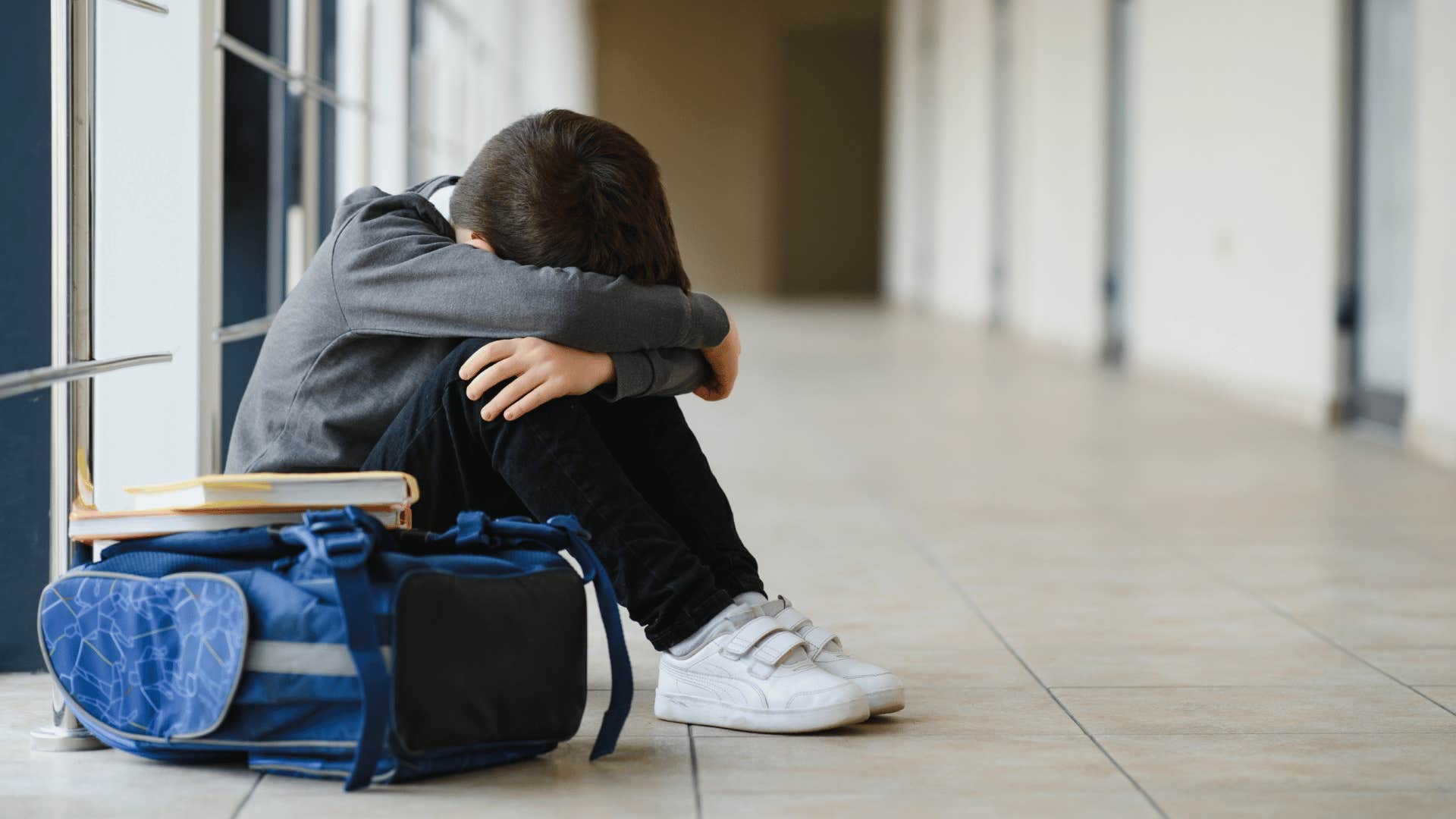 Hryshchyshen Serhii | Shutterstock
Hryshchyshen Serhii | Shutterstock
Kids who were bullied and never had a chance to heal usually grow into unhappy adults. Being bullied is an undeniably painful experience, yet having access to certain tools can help kids cope. Licensed clinical social worker Brock Hansen emphasized the important role parents play to guide their kids through the emotional distress of being bullied.
"Understanding the emotional dynamics of teasing and bullying, how it makes us feel, and why it is almost unavoidable plays an important part in emotional intelligence training for children," Hansen explained. "They will need words to describe the 'bad' feeling of shame that happens when they're teased or bullied past the point of their own confidence."
When parents have ongoing conversations with their kids about being bullied, they provide the emotional support kids need to make it through with their self-esteem intact.
3. They didn't make lasting friendships
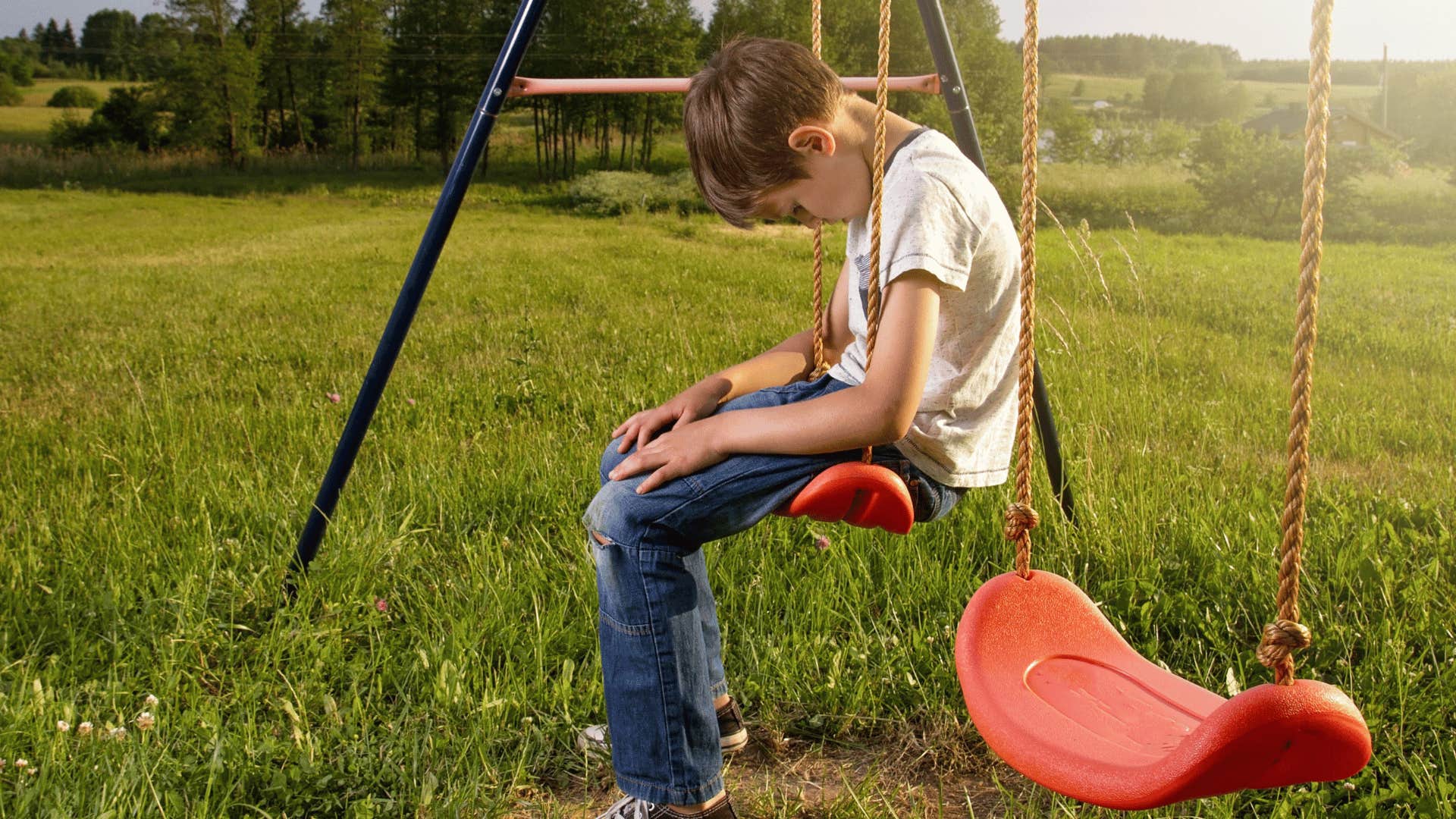 Veja | Shutterstock
Veja | Shutterstock
Having friends is essential for our long-term well-being. Forming friendships at a young age shapes kids' development, paving the way for them to have healthy, successful relationships later in life.
The British Psychological Society noted that having a close friend as a child supports social-emotional development and academic outcomes at school. They cited research that emphasized the importance of childhood friendships as teaching tools for collaboration and intimacy.
Unhappy adults usually feel isolated, like they don't fit in, which is often caused by a lack of close friendships.
4. They didn't learn healthy coping skills
 Oleksiy Rezin | Shutterstock
Oleksiy Rezin | Shutterstock
Kids who weren't given the opportunity to learn healthy coping skills usually struggle to manage stress and anxiety later on. The Child Mind Institute defines coping skills as "practices we can use to reduce the intensity or frequency of an unwanted emotion."
Having healthy coping skills can improve kids' moods and guide them to act with intention, since "coping skills can give kids the space they need to think before they act, helping them stay in control of their behavior."
Mindfulness, deep breathing, taking space, and journaling are all examples of healthy coping skills. Without the ability to self-soothe in challenging times, kids usually grow into unhappy adults.
5. They were harshly criticized
 AstroStar | Shutterstock
AstroStar | Shutterstock
Kids who were the target of harsh criticism from their parents internalized their parents' critical voice, which then became a core part of their inner dialogue. As psychotherapy expert Nelda Andersone, PhD pointed out, "Research suggests that people with harsh self-critical tendencies encountered frequent judgments, ridicule, and a scarcity of positive regard during their childhoods."
Being criticized as a child negatively impacts people's self-worth. They become adults who believe that nothing they do is good enough, and that they're unworthy of receiving love, compassion, and care. They measure themselves based on their childhood experience, and they still feel like they always fall short.
6. Their parents had unrealistic expectations
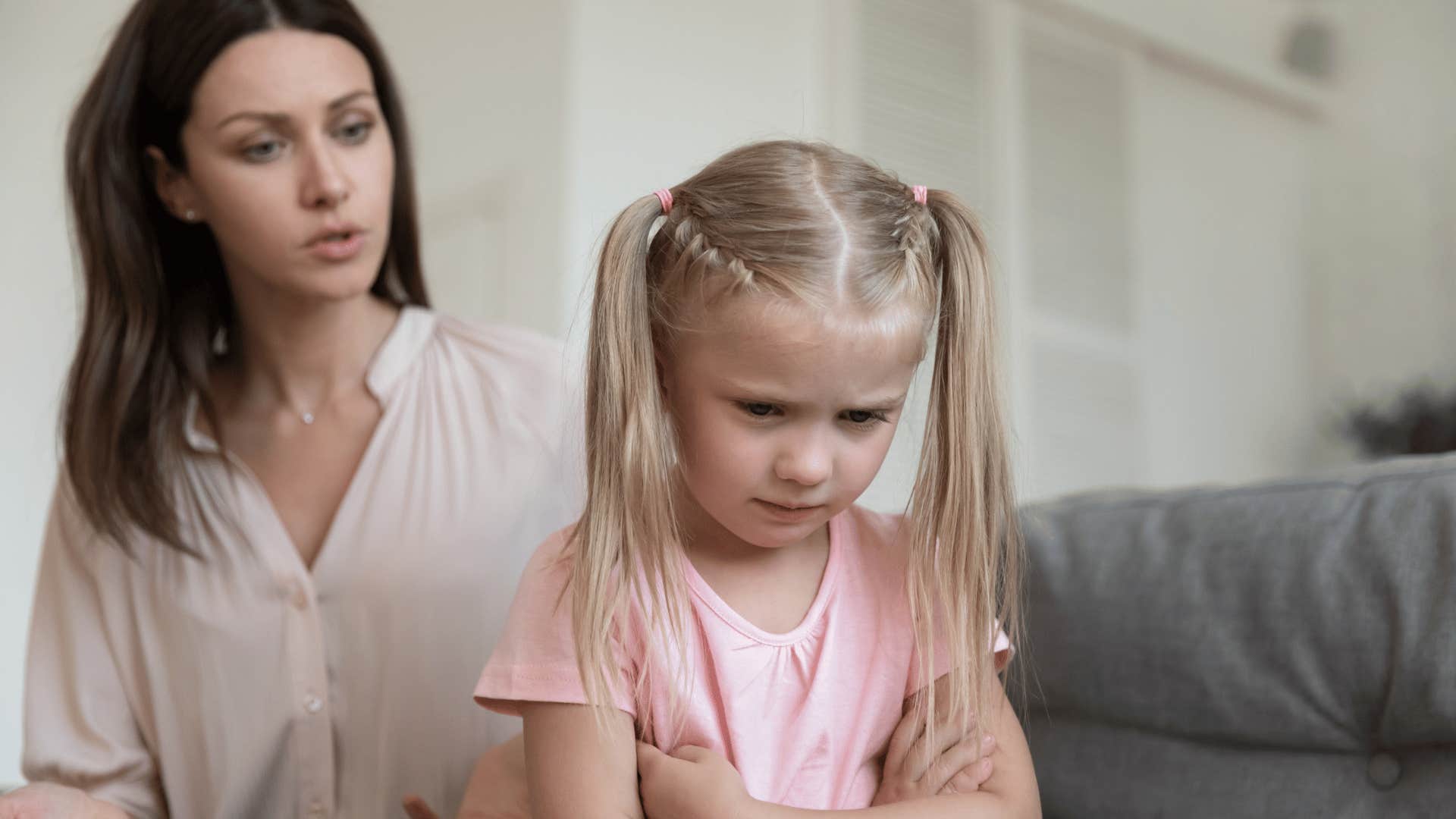 fizkes | Shutterstock
fizkes | Shutterstock
When kids are held to impossibly high standards by their parents, they become perfectionists who believe they can't ever do anything right, no matter how hard they work. While setting expectations can help kids grow, it can be a delicate balance.
Psychologist Sheryl Ziegler shared, "Setting high expectations is good for kids. Setting unrealistic and perfection-driven expectations is bad for kids."
She further explained, "This issue is not about pushing. It's about being clear about what your values are and setting the bar that your children will strive toward them and achieve most of them. Kids do well when they have the consistency and structure to meet clearly defined expectations."
Being expected to meet unrealistic standards sets kids up to define their self-worth based on what they can achieve, rather than feeling worthy just for who they are. They hold onto that rigid mindset as they grow up, becoming unhappy adults.
7. They weren't allowed to make their own decisions
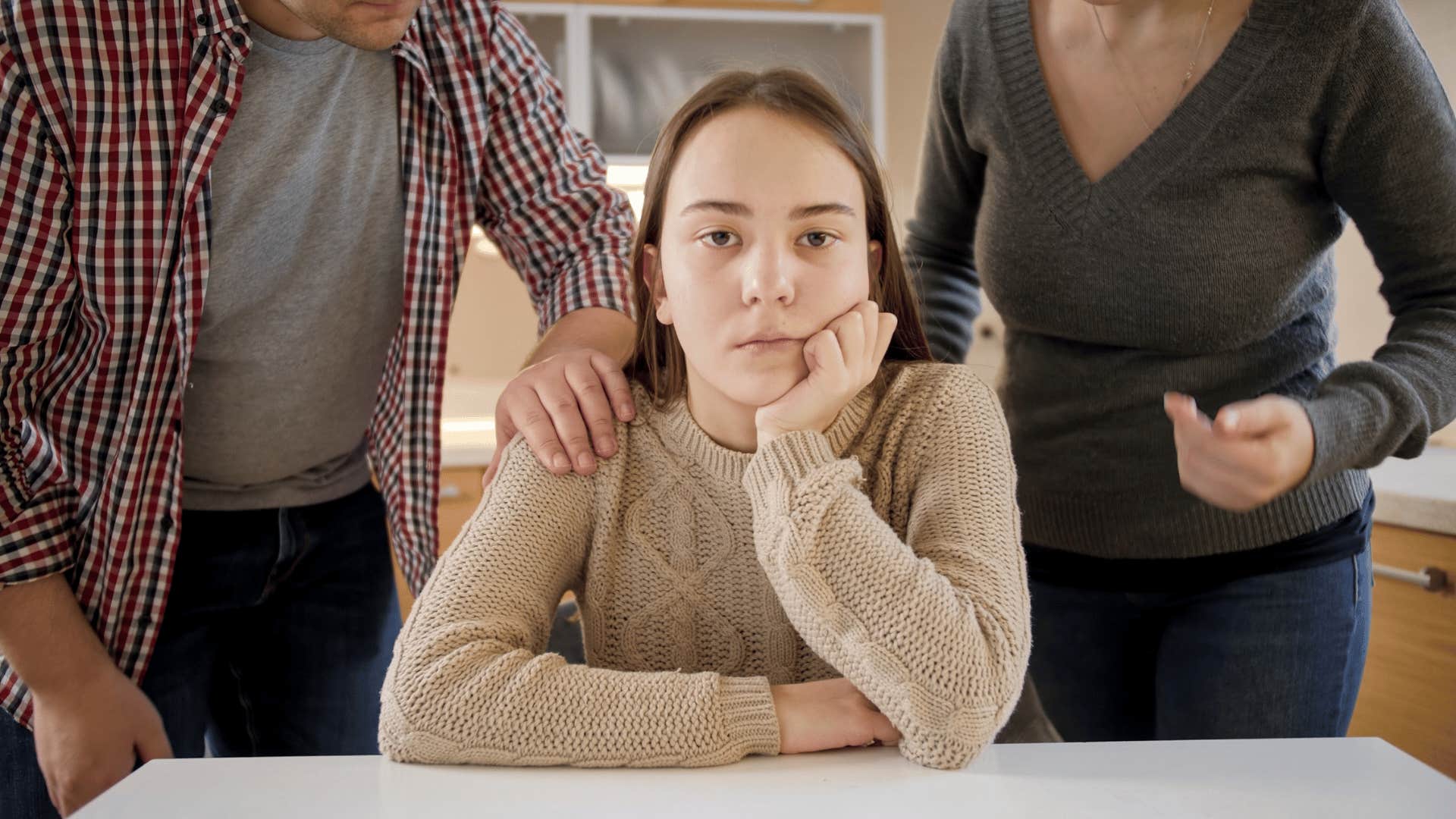 kryzhov | Shutterstock
kryzhov | Shutterstock
When kids make decisions for themselves, within a container of safety that their parents create, they learn that they're capable of doing hard things. Kids who aren't allowed to make their own decisions become adults who feel lost in their own lives, because they lack a crucial sense of agency and self-efficacy.
According to developmental psychologist Marilyn Price-Mitchell PhD, self-efficacy is "a belief in one's capability to accomplish goals that influence the events in one's life... It is a determining factor in how we feel, think, behave, and motivate ourselves in the world."
Without a sense of self-efficacy, people have a hard time determining what makes their lives feel meaningful. They seek external validation or quick fixes to feel happy, but they're missing a core part of themselves: the part that believes they can face challenges and be successful.
8. They were compared to their siblings
 YAKOBCHUK VIACHESLAV | Shutterstock
YAKOBCHUK VIACHESLAV | Shutterstock
Kids who grew up being compared to their siblings never learned that they had value, all on their own. They received the explicit message that they should try to be more like their siblings, which denied them the opportunity to develop their own unique identity. They worried their parents didn't appreciate them or love them as much as their siblings, which led to them growing into unhappy adults.
When kids don't have a base level of unconditional support, they see adulthood as an unsteady experience. They never learned to trust their own instincts, because they were told that they didn't measure up to their brother or sister. As adults, they have a hard time seeing their own individual worth, which holds them back from being fully happy.
9. Their childhood home wasn't a safe space
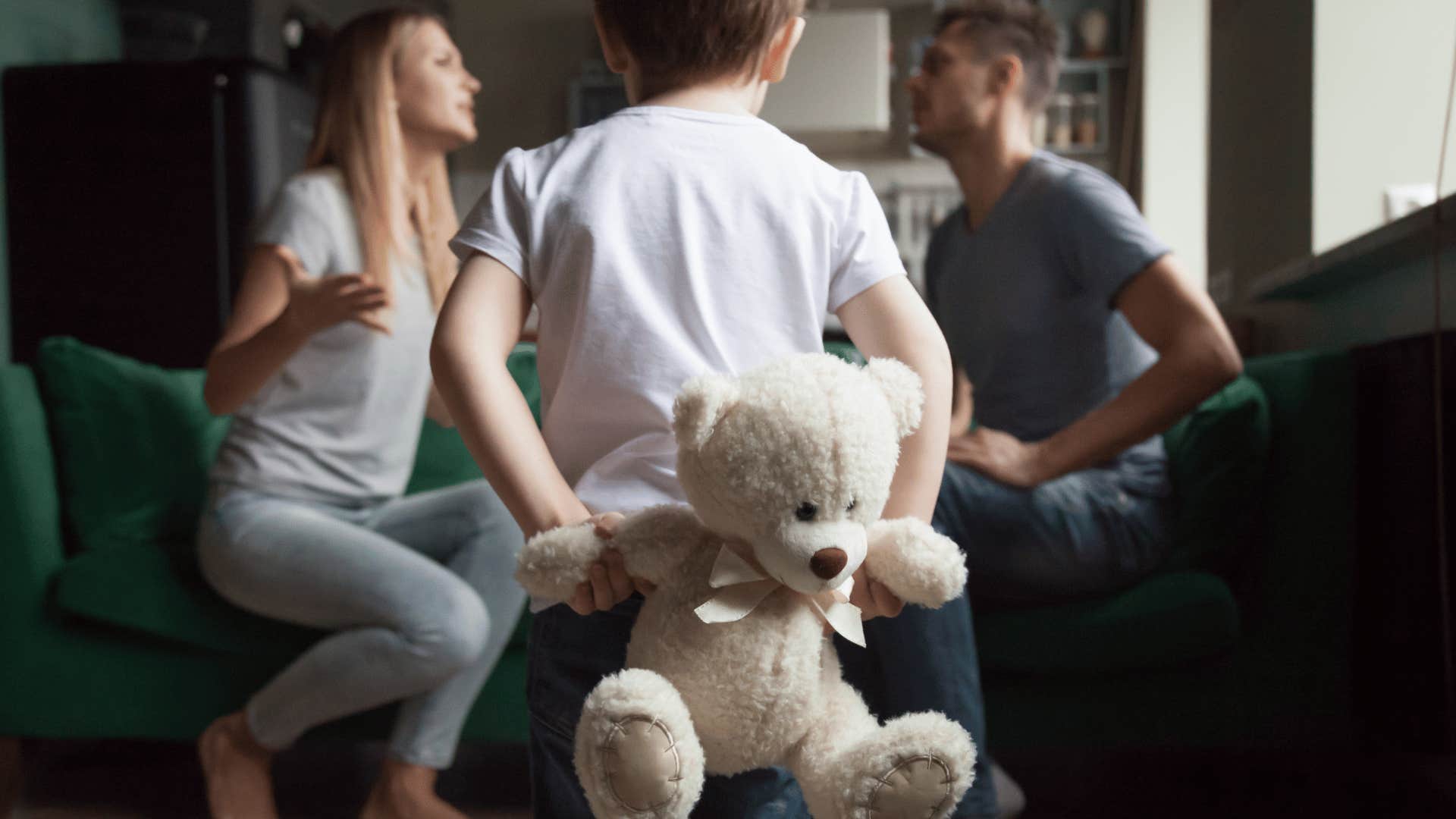 fizkes | Shutterstock
fizkes | Shutterstock
Having a sense of physical and emotional safety in childhood is essential for kids' social and emotional development. Without a safe space, kids usually grow into unhappy adults.
Trauma therapist Patrick Teahan noted that a lack of security creates a family system based in chaos, sharing that, "In a system like this, there can be a lot of broken promises, and the family is weirdly familiar with the fast-moving chaotic changes so much that they assume that's kind of how life is."
Within a chaotic, unsafe household, there's often a "total loss of basics for children, like clean laundry, stable, consistent schooling, stable food, basic needs." When kids don't have a safe space to land, they don't learn the essential skills they need to feel safe as adults, which makes their deep unhappiness take root.
10. Their parents weren't affectionate
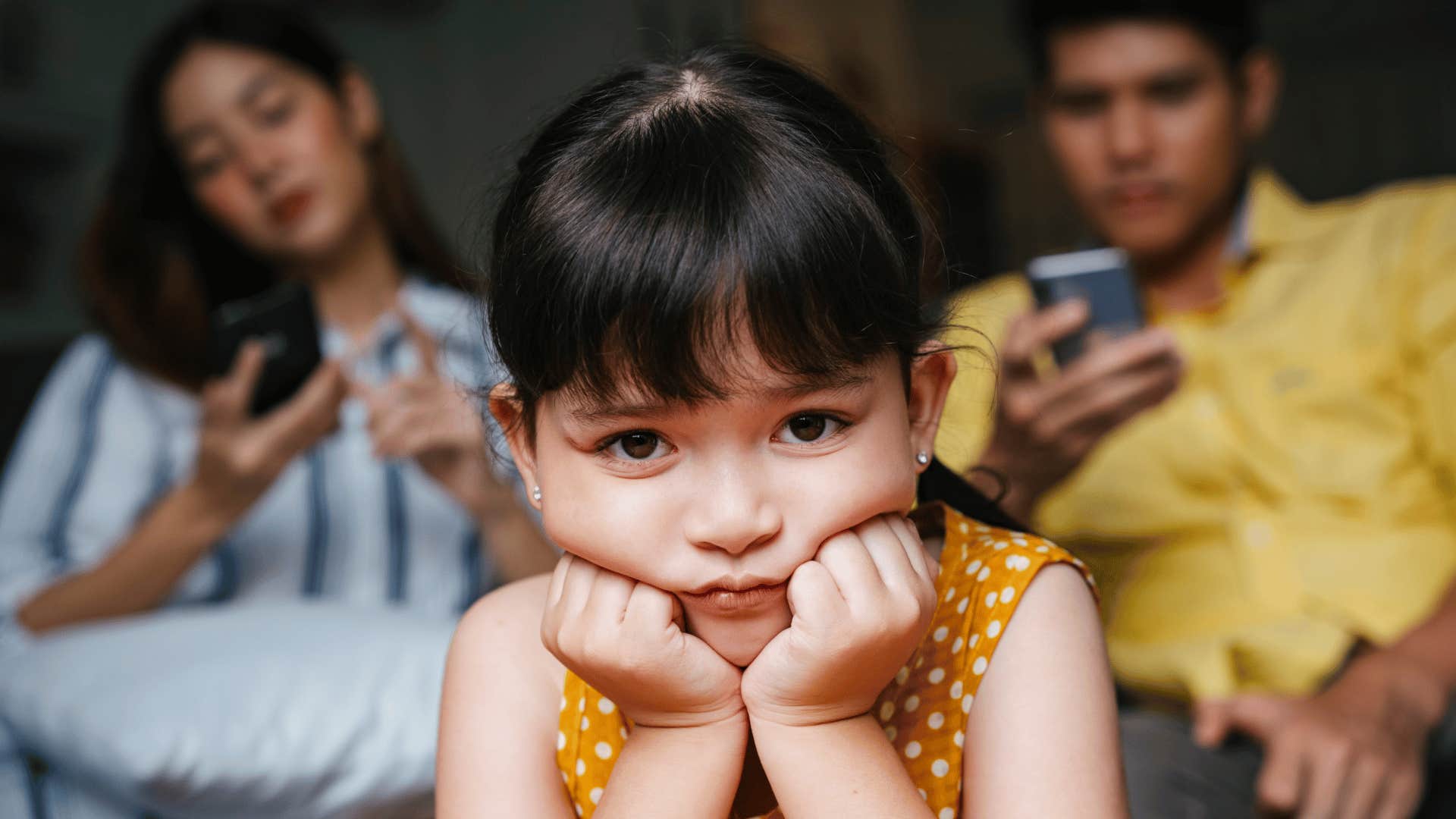 theshots.co | Shutterstock
theshots.co | Shutterstock
Kids need to be shown affection to develop a strong sense of self-love. When parents withhold affection, their kids suffer, and they struggle to have a stable, healthy adult existence. As Ziegler shared, affection is "a way to express interest and love [and] a beautiful lesson in communication and self-expression."
Affection has "a positive, long-term effect on the developing child's overall happiness including decreased anxiety and increased mental wellness." Kids need to know they're loved. Without affection, they question their worth, and often become adults who don't feel like they deserve love.
11. Their achievements weren't acknowledged
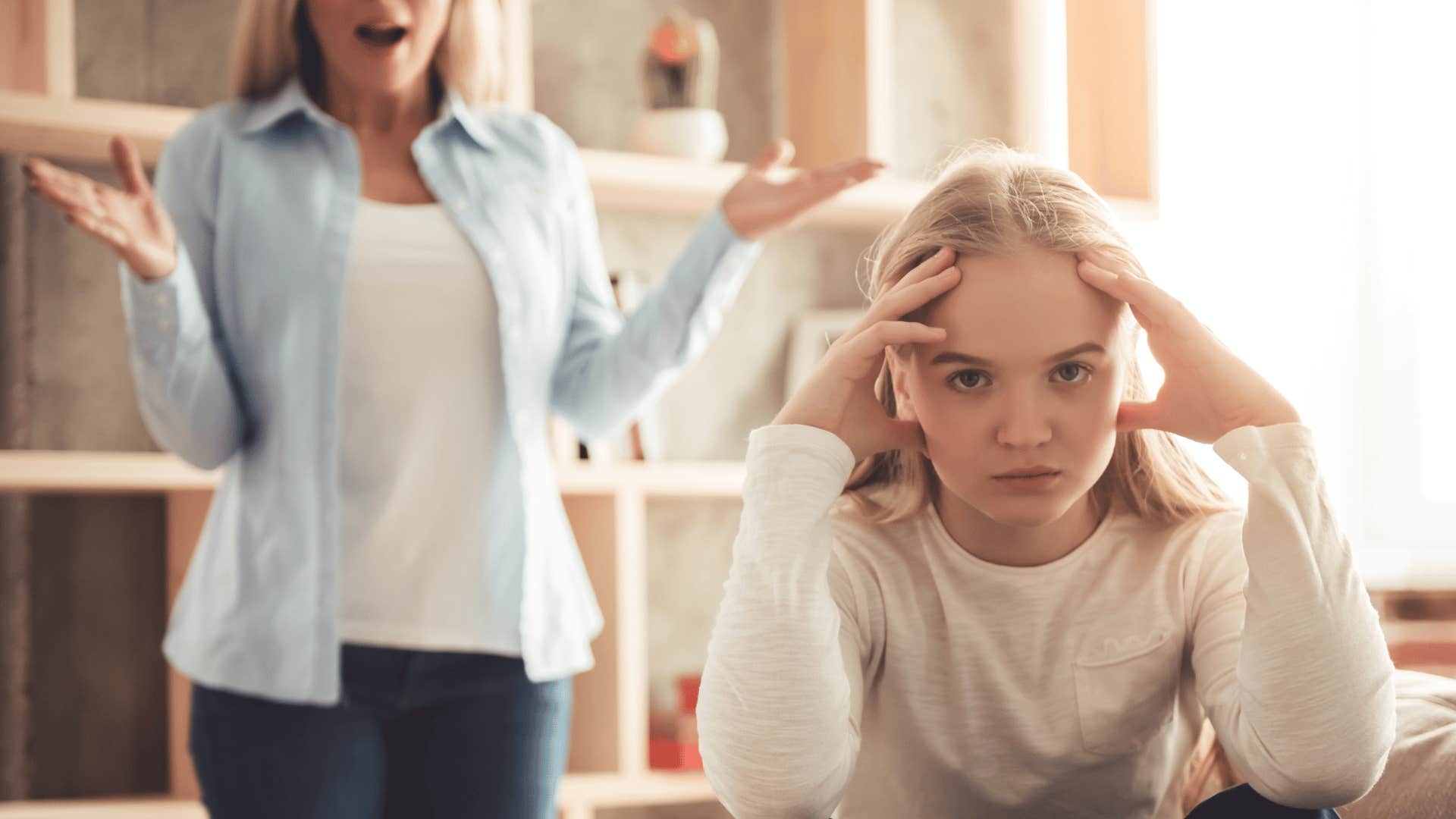 VGstockstudio | Shutterstock
VGstockstudio | Shutterstock
Kids also need positive affirmation, and if their achievements aren't acknowledged, they don't develop the confidence they need to face the harder parts of life. They learn self-trust from both within and without, interpreting their parents' pride to gain a strong sense of self-worth.
They need to know that they're doing a good job, even when they make mistakes. When kids don't hear encouragement, they struggle to see themselves as worthy, which carries into adulthood.
Alexandra Blogier, MFA, is a staff writer who covers psychology, social issues, relationships, self-help topics, and human interest stories.

